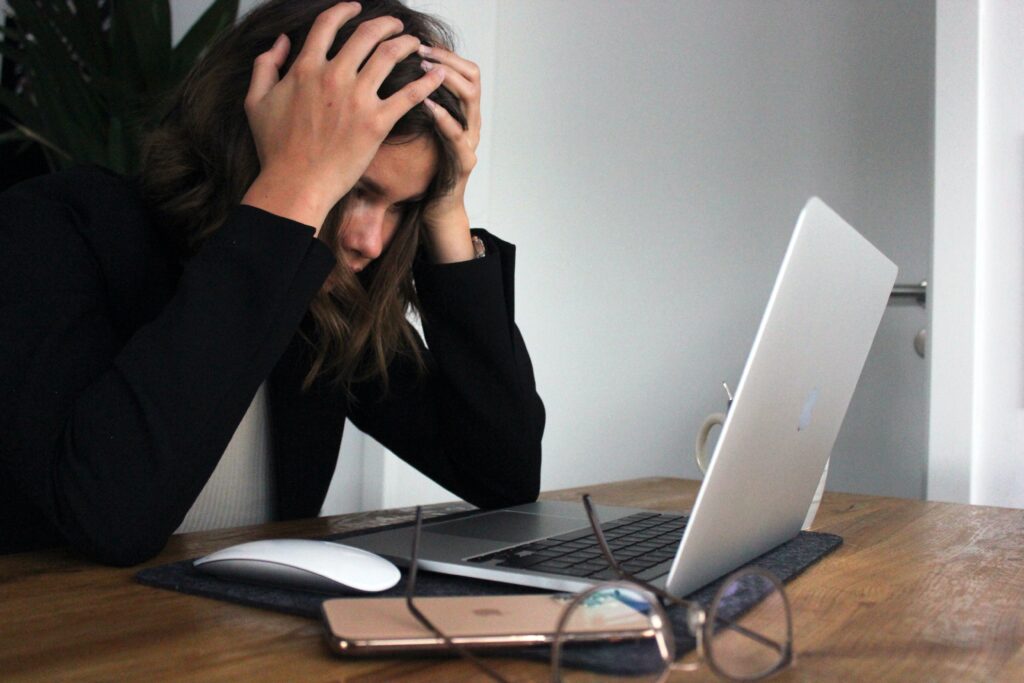Your Mental Health Is More Important Than These 6 Things

It’s wonderful to welcome you back, Psych2Goers, and if this is your first time here, then a sincere and warm welcome to you. Mental health is a very common term you may hear others say when talking about your wellbeing, or peace of mind. When our mental health is disturbed, or sacrificed for other things, we may be creating long term problems, trauma, or psychological harm to ourselves depending on the situtation.
When you decide that some things are more important than your mental health, it’s easy to constantly deny yourself the mental peace, or lack of mental stress in order to get more things done. There are many reasons that someone may see their mental health as dispensable, especially when certain situations complicate your ability to act in your best interest. From staying up late to get too much work done, to money, friends, and many others, there are almost limitless reasons why someone may choose other things over their own mental health, be it short term or long term. But first, here are some crucial disclaimers:
The information in this article is not intended nor implied to be a substitute for professional medical advice, diagnosis, or treatment. All content, including text, graphics, images, and information, contained in this article is for general information purposes only and does not replace a consultation with your own doctor/health professional. If you can relate to any of these signs, please do not take this feedback as an attack on your character. This article was meant to be a self-improvement guide for those of you who have been feeling a little stuck.
With that being said, let’s review 7 things that your mental health is more important than.
1. Publicity/popularity
There are many reasons someone may cause stress to themselves as well as their mental health when it comes to be the most popular person. Whether this be on the internet, in school, or even at work, the stresses of popularity and publicity can be harmful to one’s mental health. This also includes the pursuit, or lack of both. If you find yourself pushing to be the most famous person in the world, or getting yourself down by constantly browsing social media about why you may not be as popular as someone you look up to. Studies time and time again have shown that constant social media has negative effects on mental health, including but not limited to depression, fear of missing out, sleep, and body image (Kennedy, 2019).
When we chase fame and fortune over and over, constantly comparing ourselves to others and raising our own expectations and standards to such an incredibly high (or incredibly low) level, we run the risk of burning ourselves out, constantly comparing the rates that we should be growing to those around us. When everyone is different, we tend to stick out for different reasons, and in some crowds or environments, we might find ourselves less popular that we’d like. If you find yourself comparing yourself to those around you, using terms such as “not good enough, loser, dumb, pathetic”, you may wish to realize that both self-perspective and outside perspective may be affecting the way you see yourself.
Try to be proud of your own accomplishments, the niche or big tasks that made an imprint on you when you first accomplished them. If you aren’t where you want to be, or feel that your accomplishments are small in nature, keep in mind that your own individual achievements are milestones for you first, not to somebody else or any other groups of people.

2. Staying up too late
You’ve heard us say this again and again, Psych2Goers, that sleep is absolutely crucial for so many aspects of your body that it’s almost criminal to be robbing yourself of sleep! There are many reasons that we have be waiving our sleep away, whether it be to talk to friends or loved ones late into the night, or to play just one more game, watch one more movie, or even just to relax from the hustle and bustle of the day, we can make more hours available to us if we just sacrifice our sleep, right?
While plenty of people around the world tend to choose staying awake over going to sleep for various reasons, we know that when we have important work to do the next day, that staying up is something that we may regret in the morning. Have you ever prepared yourself to set an alarm, noticing that you would only be getting just a handful of hours before bed? Or that you woke up the next morning, instantly regretting not sleeping? There’s more than meets the eye when you have these types of issues, and that can be attributed to a number of factors that sleep actually does help with.
If you’ve felt cranky after getting little to no sleep, or you’ve felt depressed when the morning follows, it can worsen depression and trigger mania or bipolar disorders, worsening the effects when you don’t get sufficient sleep. This also extends to your immune system, especially since our body cannot produce cytokines when its awake for long periods of time, which, much like white blood cells, help fight off infection, and can be harmful, especially when the misconception that sleep deprivation is only a matter of “being tired later on in the morning” (Santospirito, 2020).
Making sure to take sufficient naps at times that you have free, or reaching out to a professional about help with regulating your sleep pattern may be a helpful choice, especially when your body depends on you to sleep to recharge and stay fit!
3. Money/wealth
As the saying goes, “money talks”, right? Well, while being in a good financial situtation or working to get yourself into one can be a stressful task, if you lend all your mental health out to finance, it prove to be quite devastating. When we feel as though we have to spend money on certain things, or that we can’t spend money at all, or even if you’re the type of person that may be stressed about getting more money, they each have their own downsides when mental health fits into the picture. For example, if you had ever felt forced or guilted into lending money to others, or spending money on something that you thought would be neat, but turned out to leave you in a worse off situation later on, it might cause you to feel like you can’t stop just “losing” all of your money out of seemingly nowhere.
In addition, when you’re trying to save up for something big that you begin to neglect your physical and mental health, it may easily wear on you in due time. Neglecting to wash your clothes, get enough sleep, as well as eating and drinking enough each day may cause you to feel worn out in the pursuit of saving every dime that you can.
Whatever your situation may be, there is help available to you, no matter which situation you’re in. Looking for communities around you, or reaching out to friends may help you find a system where you can start learning how to budget your money (if you spend too much), get money, food, or resources you need to take care of yourself (should you not be spending enough on your own health), or even if you are having difficulty getting money (in the case that you don’t have enough to pay off any essential bills or services). Reaching out for free finance classes, local or government assistance, or even looking into local programs around your neighborhood, there will be something that you can take advantage of in order to help your spending habits, and balance your finances to help support the lifestyle that you want to build.

4. Romance/dating
Have you felt as though you haven’t quite found “the one” just yet? Maybe you’ve been searching for a while, or maybe you just got out of a dicey situation from a previous old flame. Either way, the expectations that can arise from the societal pressures of finding a significant other can be very pressing sometimes, even going as far to insinuate that you have to have a partner, or at least have a certain number of partners at a certain age. Maybe you feel as though everyone around you has been getting together with others, having plenty of fun, exciting, and interesting relationships, even marriage in some cases!
While it’s heartwarming to see others enjoying their new found partnerships or experiences, it can make you almost as though you’re left out of the loop, or that you’re missing out. Even though it may seem like it sometimes, you’re not alone. Surveys and statistical data has shown that that at least 53% of single young adults aged 18-29 years old report some sort of pressure to be in a relationship with another. If that wasn’t interesting enough, it was also found that half of single adults have reported that they are not currently available to date with others (Brown, 2020)!
As we grow older, we may found ourselves less and less likely to feel pressured to be in a relationship, even going as far to willingly place ourselves out of the realm of dating altogether. However, it’s normal for those who are younger to experience pressure in some way, which can lead to some of the anxiety surrounding finding a partner, and how the expectations of those around you may feel overwhelming at times. Do remember, you grow at your own pace. Not every adult in the whole world has found love. Even if everyone around you seems to be finding love in hard to find places, remember that it’s OK to grow at your own pace, and make your decisions that are best for you. You know what they say, love will sneak up on you when you least expect it!
5. Work/Education
Busy, busy, busy. Do you tend to be “busy” more than almost anything else? Others might call you a workaholic, even if it doesn’t seem that way to you! Worry not, there’s always good traits to being a hard worker. Better grades, better learning opportunities, and more experience, too! While our studies and work are supposed to put a healthy amount of pressure on us so that we can be motivated to learn or perform, it’s not always that way. Burnout when working too hard is all too common, especially when studying something for extended periods of time without breaks or proper maintenance on your person. As defined by University of The People, academic burnout is “a negative emotional, physical and mental reaction to prolonged study that results in exhaustion, frustration, lack of motivation and reduced ability in school”. When schooling continues for many weeks or months on end, working on the same project or studying similar topics, it’s normal for humans to develop a kind of chronic academic burnout (What Is Academic Burnout? 2021). Feelings of anxiety, depression, frustration, lack of inspiration, and many others have been cited to be symptoms of academic burnout, and are very easy to see how they may draw parallels with working a job as well.
Studying until your eyes start to hurt, working until your hands are cramping, or until you put yourself in a sour mood can ruin the quality of the information you’re trying to learn, or the work you’re trying to complete. Putting your body through emotional and physical stress far beyond your limits can end up hurting you, leaving you burned out and unable to complete your projects on a normal basis that you otherwise would. This can lead to procrastination as well, perpetuating a cycle of wanting to get work done, but feeling too tired or worn out to actually get it done.
If you’ve been working so hard that you’re sacrificing your mental health, you may find it increasingly harder to sustain your hard work. Try to find time to take lunch breaks, snack breaks, or even bathroom breaks to give yourself the bit of time you need to recharge your batteries. While it’s important not to feel as though you have to give up on school or work because you’re feeling stressed, intermittently taking normal breaks, and making sure that you’re saving time for hygine, nutrients, and some well deserved rest and relaxation can be the key to overcoming any obstacles that you might be facing when you work yourself so hard! Everyone needs a vacation sooner or later, so give yourself the vacation you deserve, when you deserve it.

6. Selflessness
At Psych2Go, we truly love to give our best selfless selves to all of you Psych2Goers out there. As you may know, our mission is to make sure that psychology and psychological information is more accessible to everybody all around the world! All of our articles and videos are for wonderful readers and viewers like yourself.
However, on a personal level, it’s very important not to give too much of yourself to others, and leaving yourself with an empty plate. Have you ever sacrificed something for someone you cared about, or said something you didn’t want to say just to make someone else happy? Did you ever come to regret it later on? While regrets can be common when we do things that we don’t want to, sometimes it’s our friends, family, or loved ones around us that are the reason that we do a little extra push for them. It’s always wonderful to go out of your way to help someone when they need it, and providing support and care where it may not always be available to them. However, when you put too much time, effort, or make too many sacrifices solely for the sake of others, you might find yourself tuckered out and unable to help them as well as you once did.
Making sure to respect your own limitations, and when you really want to do something for yourself is essential when connecting with those you love. Setting polite boundaries lets people know that you may be more able help them with certain things more than others, at different times and points in your life. Let’s say for instance that you are feeling a bit blue because you’ve been having some problems in your family. Maybe it isn’t the best time at the moment to offer your friend help with planning a big family dinner, or talk about the trouble they have been having with their family. It’s completely OK to have your own limitations and let people around you know that there are some things that you aren’t OK talking about.
When you show the people around you honesty, and create boundaries, it can make it a lot more clear to them when you are comfortable talking about something, and when you’re not. Selflessness is a beautiful gift to give to someone else, just make sure that you’re not giving out more than you have.
Concluding Remarks
Mental health and physical health tend to go together as a couple, but it’s important to know when you might be sacrificing one for the other, or putting yourself into situations where you feel as though you are mentally compromising your own emotions and feelings in order to achieve a goal. Whether it’s money, popularity, school, love, or even just to get one more episode of your favorite show before bed, it’s important to keep your own health in mind. Just like your body, your mind can get sick, feel weak, and need time to rest and recharge after working super hard. Be kind with your mental health, and you may see that it will be kind back to you.
As mentioned before, thank you so much for your viewership, Psych2Goers. We truly hope that this article has made you think a little bit more about your mental health, and the potential sacrifices we tend to make at its expense. If you found this article helpful, or might know someone who would like to read it, feel free to share it with the people that you love. Feel free to share in the comments down below what you realized your mental health took priority over, and how you dealt with the situation. We would love to hear! Thank you Psych2Goers!
Further Viewing:
References
Brown, A. (2020, October 2). Nearly half of U.S. adults say dating has gotten harder for most people in the last 10 years. Pew Research Center’s Social & Demographic Trends Project. Retrieved from https://www.pewresearch.org/social-trends/2020/08/20/nearly-half-of-u-s-adults-say-dating-has-gotten-harder-for-most-people-in-the-last-10-years/
Kennedy, K. (2019, May). Positive and Negative Effects of Social Media on Adolescent Well-Being. ProQuest. Retrieved from https://www.proquest.com/openview/951ab9d82e4667822a3d33d0923581c6/1?pq-origsite=gscholar&cbl=18750&diss=y
Santospirito, L. (2020, June 14). 5 Sleep Deprivation and its Weird Effects on the Mind and Body. YouTube. Retrieved from https://youtu.be/pT7NyoO0zu8
University of the People. (2021, December 13). What Is Academic Burnout? University of the People The Education Revolution. Retrieved from https://www.uopeople.edu/blog/what-is-academic-burnout/




Responses